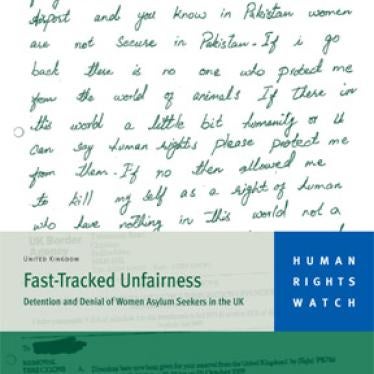(Berlin) - Governments should act immediately to fulfill commitments under a new gender equality pact adopted on March 7, 2011, by the Council of Ministers of the European Union, Human Rights Watch said today. The pact, adopted the day before International Women's Day, calls on governments to promote gender equality in Europe by closing the gender gap in the labor market, promoting a better work-life balance for men and women, and combating all forms of violence against all women.
The 27 employment and social affairs ministers of the EU reaffirmed that ending gender equality and combating violence against women is at the heart of EU policy, and is necessary for achieving economic growth, prosperity, and competitiveness.
"Ending violence against women and promoting equality is not a luxury in the EU today," said Gauri van Gulik, women's rights advocate at Human Rights Watch. "This pact shows the EU realizes the importance of women's human rights, but the EU and member states need to translate this resolve into action."
To combat violence against women in the EU specifically, this pact urges EU countries, and the European Commission, to adopt prevention strategies and to protect victims, including women, from all disadvantaged groups.
Throughout the EU, certain groups of women are particularly vulnerable to abuse, and face significant barriers when they need protection from violence. For many women who migrate to Europe for work or family reunification, their immigration status is linked to an employer or spouse, making them reluctant to report abuse perpetrated by their employer or spouse for fear of being deported.
Women without a valid residence permit, including women seeking asylum in the EU, are often refused access to domestic violence shelters, and are reluctant to approach the police for protection. Women with disabilities face particular forms of violence and experience practical obstacles to getting help.
Other groups that experience obstacles to protection in the EU are women from ethnic minorities, such as Roma women, who may face violence and discrimination both within and outside their community.
"The women who need protection the most are often left out of domestic violence programs and services," van Gulik said, "We are thrilled the EU recognizes that all women deserve protection from violence and discrimination, but we need the legislation and programs to back this up. To start, we need a comprehensive directive on violence against women that leaves no woman behind."
There are no EU-wide statistics on the prevalence of violence against women or domestic violence. In the wider Council of Europe region, research suggests that around a quarter of all women face domestic violence at some point during their lives.







